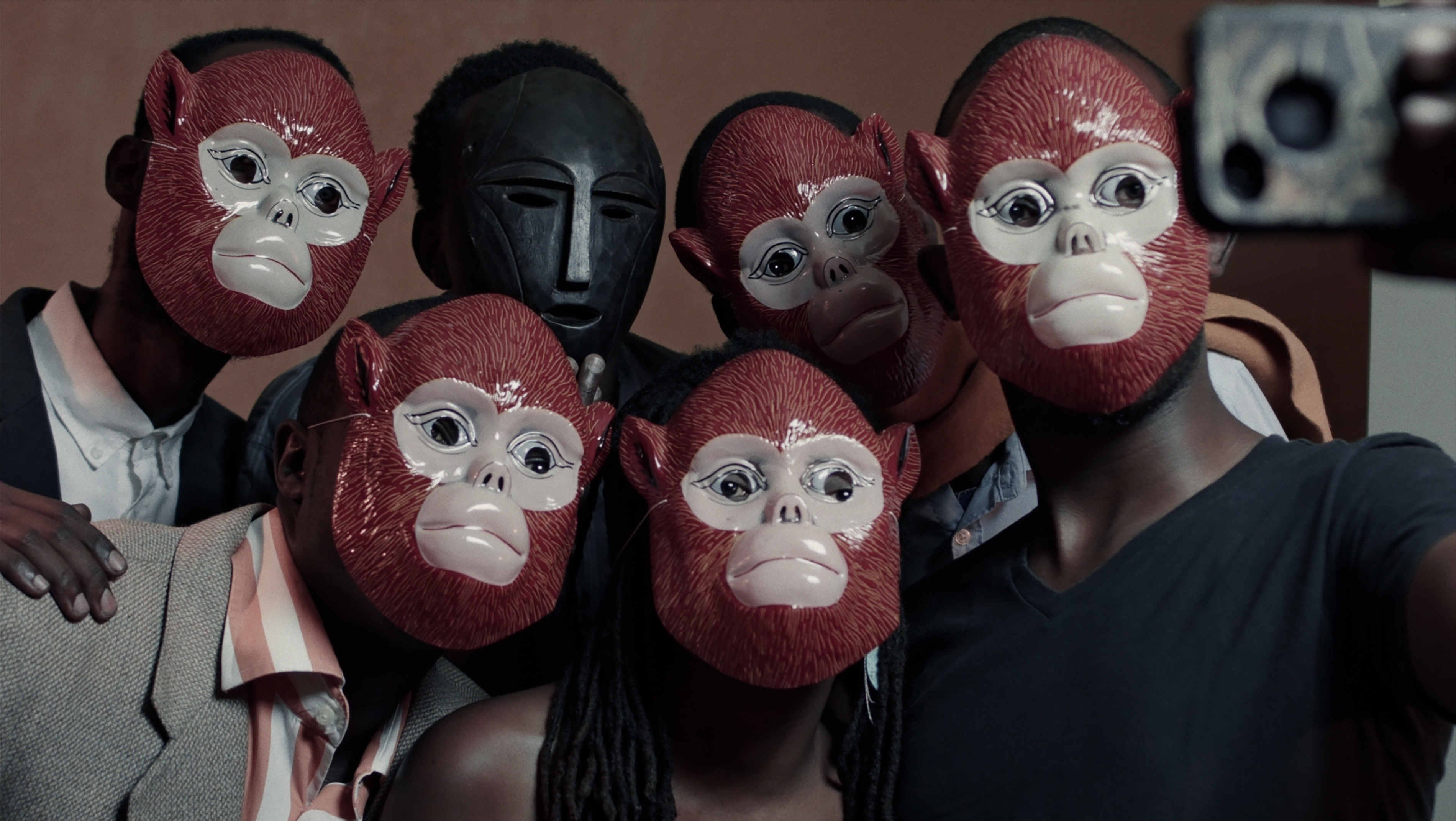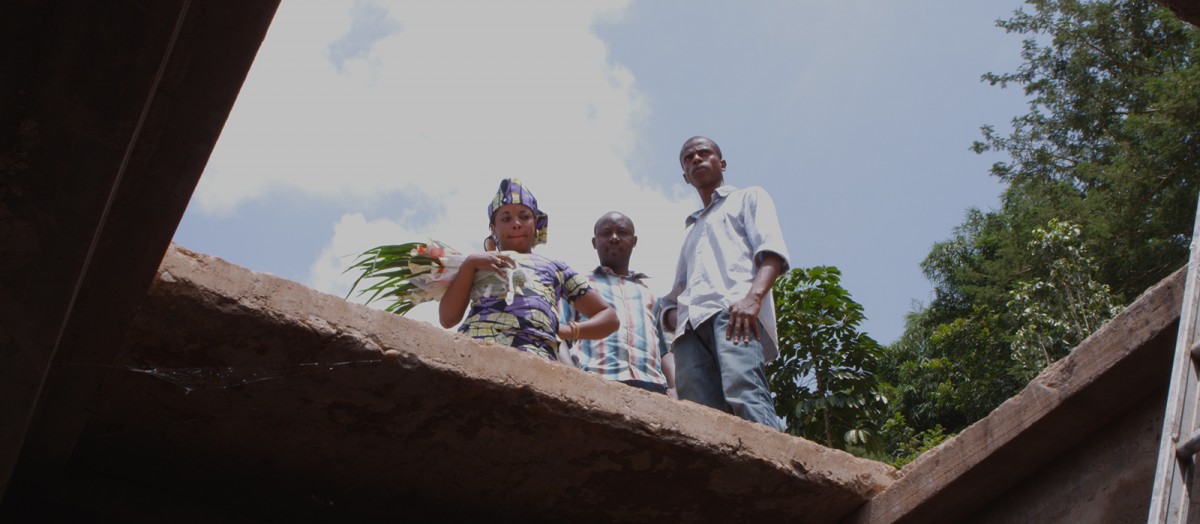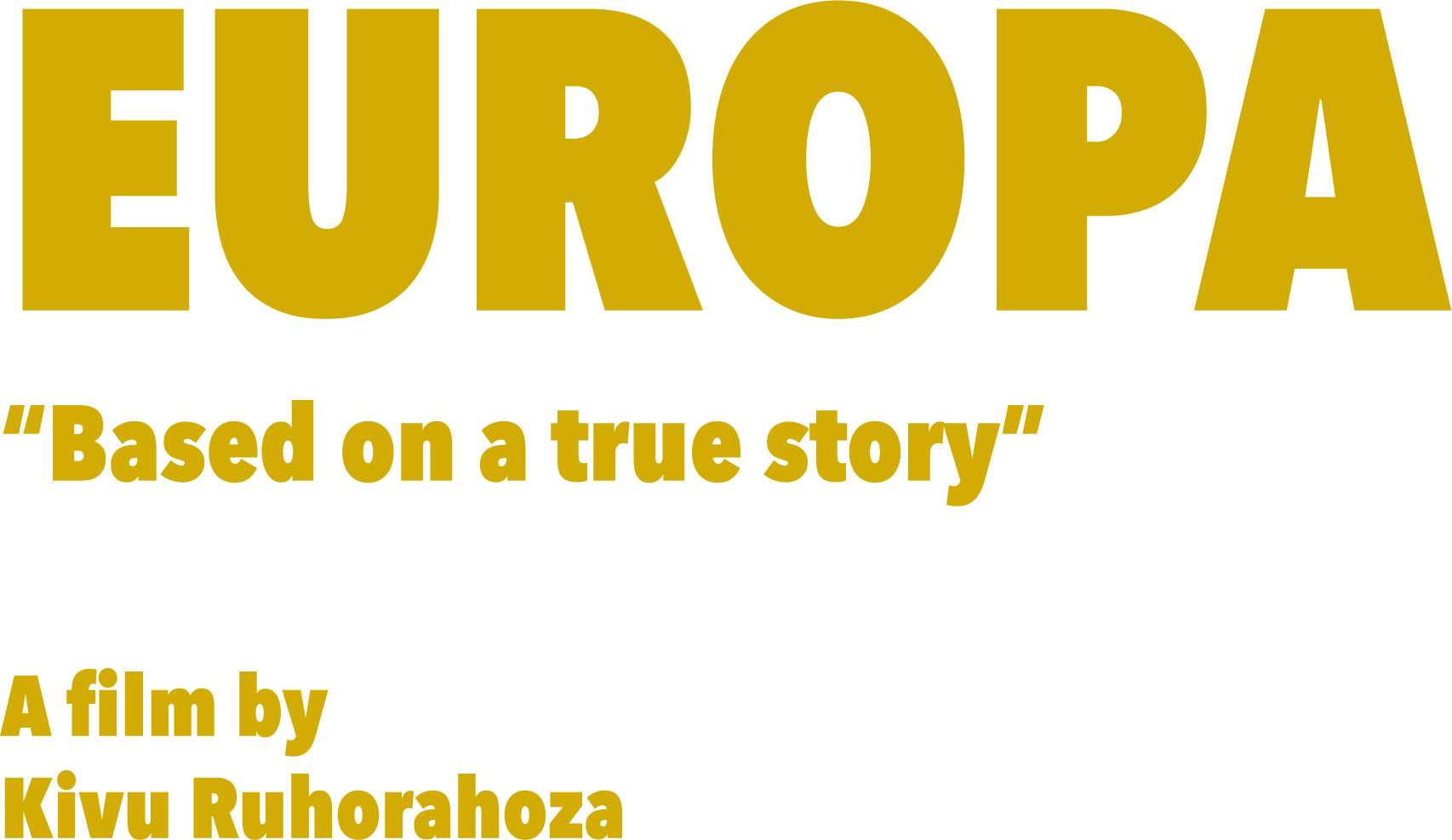A hybrid film set in London by a Rwandan director, about a mysterious Nigerian man, his mixed race British lover and the lover’s white husband set against a backdrop of increasing social and racial tension.
Director Kivu Ruhorahoza (Grey Matter) decides to film his new movie, A Tree Has Fallen, in London. It’s to be a stylish drama set in the UK about a fatal three-way relationship between the Nigerian asylum seeker Simon (played by Oris Erhuero), a British woman (Lisa Moorish) and her ex (Matt Ray Brown). After his death, Simon appears to the ex as a ghost to tell his story, demanding a presence that was denied him as an asylum seeker.
The scenes between the two lovers, the two exes and two rivals increasingly relate to the disparities between Africa and Europe. These fictional scenes are intercut with documentary footage of demonstrations in London: against Trump, for or against Brexit, far-right disturbances and climate protests, as well as festivities for the LGBT Pride parade.
In this hybrid film, Ruhorahoza talks in voiceover about his own experiences on the European continent. His stay in Europe becomes increasingly uncertain with each deeper layer of his metanarrative.
Filmography
Things of the Aimless Wanderer
By Kivu Ruhorahoza

(Text taken from the Sundance Festival’s website)
Kivu Ruhorahoza’s arresting feature reveals a series of cryptic and loosely connected narrative shards. Each depicts an uneasy encounter between an African woman and a male figure of authority or menace, be he a nineteenth century white explorer, a twenty-first century Western journalist, or a Rwandan man performing reconnaissance for a shadowy internal agency. In each story, a female figure is an object of lust, surveillance, fascination or violence, inevitably disappearing from the narrative. Every disappearance becomes a sort of chorus, punctuated by enigmatic images and haunting musical soundscapes. Considering the film’s title (“aimless wanderer” originally described hapless European explorers), one might indeed ask whether the female avatar of these stories may be a metaphor for Rwanda itself: colonized, objectified, and struggling to calibrate cultural gains, including gains for women, with reactionary policies and sentiments. Such questions haunt the periphery of this provocative film whose narrative core remains a reservoir of mystery. —S.K.
Justice Seekers
By Antonio Rui Ribeiro

One couple hopes to take action against high-profile Rwandan exiles, alleged to have been deeply complicit in crimes.
Twenty years on, the Rwandan genocide runs the risk of fading from the West’s collective consciousness. For those who lived through the 1994 massacre of 800,000 ethnic Tutsis, however, survivors’ guilt, nightmarish memories, and the psychological need for closure remain strong. Dafroza Gauthier lost her extended family in the massacre and was lucky to escape Rwanda alive. She and her husband Alain have spent years carefully collating and recording first-hand testimony against the men and women alleged to have been among the leading figures in Rwanda’s nightmare.
Finally their struggle has borne fruit: in early 2014, Pascal Simbikangwa, who was the head of central intelligence in Rwanda in 1994, stands trial in Paris on charges of complicity in genocide, and complicity in crimes against humanity. The trial marks a huge step forward in France’s official stance over the genocide, and it is occurring in no small measure because of the Gauthiers’ determination. For many survivors and observers, the reluctance of successive French administrations to take action against alleged perpetrators residing in France is inexplicable. The Simbikangwa trial is historic, marking an acknowledgement — not yet an apology, of the faults of previous French foreign policy, but it is only the first step on the road to rectifying wrongs.
For further information, please contact:
